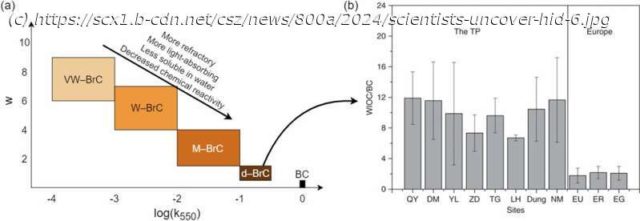Wildfires leave potent climate heaters behind in their wake, particles that enhance the absorption of sunlight and warm the atmosphere. Dropped on snow like a wool poncho, these aerosols darken and decrease the surface reflectance of snowy places.
Wildfires leave potent climate heaters behind in their wake, particles that enhance the absorption of sunlight and warm the atmosphere. Dropped on snow like a wool poncho, these aerosols darken and decrease the surface reflectance of snowy places.
But until now, it had not been understood just how different types of smoke particles contribute to these effects. In a study recently published in npj Climate and Atmospheric Science, researchers at Washington University in St. Louis model how dark-brown carbon (d-BrC)—light absorbing, water insoluble organic carbon—from wildfires plays a much larger role as a snow-warming agent than previously recorded. It’s 1.6 times more potent than what researchers previously thought was the main culprit, black carbon.






